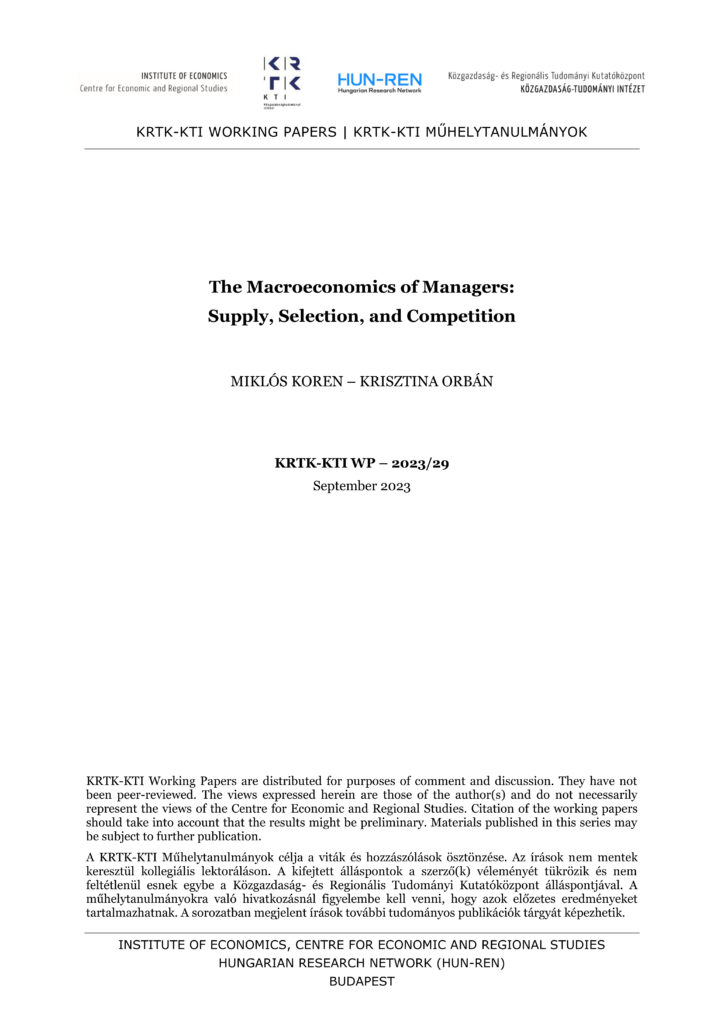Good management practices are important determinants of firm success. It is unclear, however, to what extent pro-management policies can shape aggregate outcomes. We use data on corporations and their top managers in Hungary during and after its post-communist transition to document a number of salient patterns. First, the number of managers is low under communism when most employment is in large conglomerates. After the transition to capitalism, the number of managers increased sharply. Second, economics and business degrees became more popular with capitalist transition. Third, newly entering managers tended to run smaller firms than incumbent managers. We build a dynamic equilibrium model to explain these facts. In the model, the number and average quality of managers react to schooling and career choice. We use the model to evaluate hypothetical policies aiming to improve aggregate productivity through management education and corporate liberalization. Our results suggest that variations in the supply of good managers are important to understand the success of management interventions.
Publikációk / The Macroeconomics of Managers: Supply, Selection, and Competition
2025
Sep
18
M
T
W
T
F
S
S
1
2
3
4
5
6
7
8
9
10
11
12
13
14
15
16
17
18
19
20
21
22
23
24
25
26
27
28
29
30
1
2
3
4
5
Next month >
a
2025
Sep
18
M
T
W
T
F
S
S
1
2
3
4
5
6
7
8
9
10
11
12
13
14
15
16
17
18
19
20
21
22
23
24
25
26
27
28
29
30
1
2
3
4
5
Next month >


